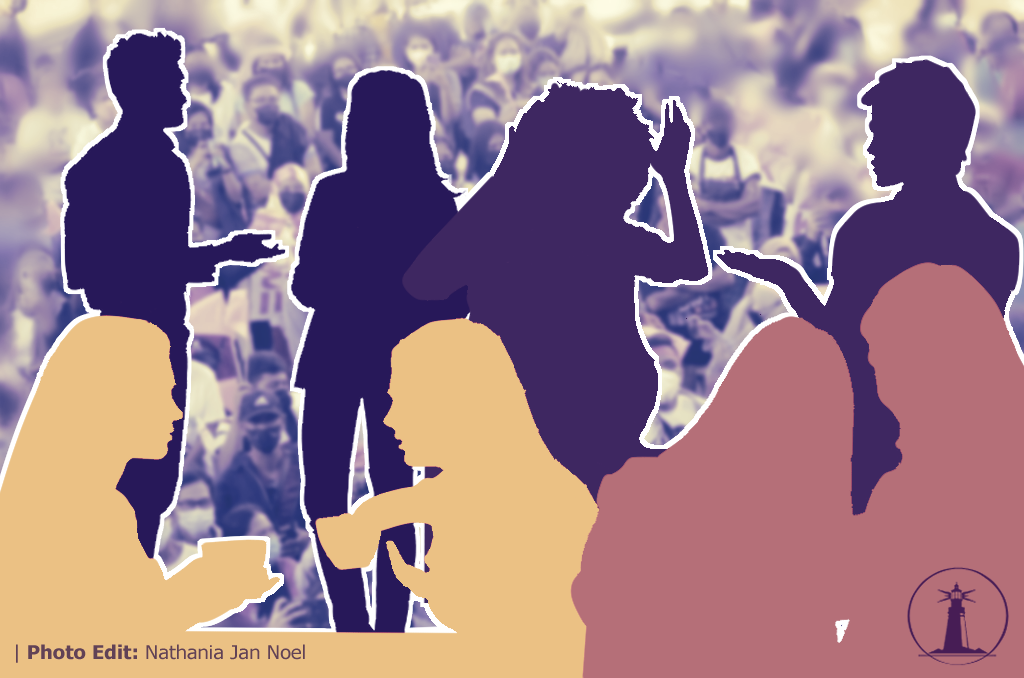One cannot deny that the campaign season for the 2022 National and Local Elections has commenced with presidential candidates parading their platforms all over the country. The campaign season is also visible in the sidewalks heavily draped with tarps, catchy jingles that live rent-free in our heads, and supporters dressed in the political colors of their presidential bet. It’s exactly 26 days till the entire country takes up the yoke of electing our new leaders. The highly disputed presidential race is still undecided as of this writing. The emotional stakes are higher, and heated political debates—both pleasant and unpleasant—proliferate, with the latter unfortunately becoming more prominent. After all, it is election season. It’s the moment that everyone dreads. With election season drawing near and political aspirants vying for positions, everyone is threading and navigating the uncertainty of which among these candidates they believe is most qualified to steer the ship over the next six years.
This election, in one way or another, has brought to light the declining state of our relationship with one another. One concerning aspect is that our political discussions with friends have also turned into a battleground, especially between friends who hold opposing political viewpoints. We are more likely to find ourselves disagreeing with a friend over politics, or being frustrated with them over who they support for the presidential position. To avert potential disputes amongst one another, some would suggest steering away from political and election discourse. But when you live in a country that has endured six years of political atrocities and decades of institutional injustices, you will understand that everything is and must be political—friendships are no exception. The quote “Tell me who your friends are, and I’ll tell you who you are” is not pertinent in today’s election context. There is no room for tolerance or acceptance for those who openly support the narratives of these power-hungry politicians, including our closest friends.
It saddens me to hear that this conundrum had led several friendships to cease. Even decades-long relationships have been caving under the pressure of such political disputes. It happens. Needless to say, I have witnessed this one far too many times. This situation seemingly appears as a test to hold the tension over political differences while attempting to restore connection and to further avoid the division within our circle of friends.
Indeed, the country’s acrimonious political turmoil is splintering society and jeopardizing friendships. To the parted close friends, their rift wasn’t just a disagreement of opinion. Our political sensibilities are not confined to candidate preferences. They are intertwined with our sense of identity, human decency, and morality. Political differences are not as easy to accept and tolerate as some might claim. This is in no way similar to having differing opinions on which coffee flavor tastes better, which detergent cleans our dirty laundry the most, or whether buying an apple over a Samsung branded phone is worth anyone’s cash. The current state of the country is more than likely to turn into a “tell me who you are voting for, and I’ll tell you who you are ” predicament. Supporting a candidate with a history of convictions, human rights violations, and malfeasance reflects not only one’s political preferences but also reveals a lot about one’s moral standing as a human being.
After a long line of tirades against each other and amid all the noise, how do we move forward? We must open our perspectives to the narrative that individuals are vested with the freedom to take their own stance on subjects including politics. Hence, people, even our circle of friends, can have different political views and hold strong convictions that differ significantly from our own. What’s off-limits is to cut people off because of the contrast in our stances. Just because your views do not coincide with those of what they believe in, doesn’t make yours any less valid. Even if their political views are quite upsetting on your part, do your best to employ respect. If there will be no room for tolerance of problematic beliefs, it doesn’t mean that there would be no doors for open communication. Respect can come in many forms, including acceptance and tolerance, as well as having the fortitude to tell them that what they choose to overlook can bring consequences they too might suffer in the future—after all, that’s what friends are for.
Politics is a game of power, and being in a position of power comes with its own perks. However, like most things in this world, politics and power are fleeting. Terms come to an end, and what goes up, must come down. Friendships, on the other hand, do not have to be temporary. Friendships must outlive politics. If there is one thing I have learned through the years, is that it is not worth burning bridges and ending friendships over political differences. There can still be civility in conversations surrounding politics, but that doesn’t always mean that a friendship has to bear the cost of political differences.
____
Sarah G. Susulan is a freshman student of BS Nursing and a feature writer for The Beacon.
